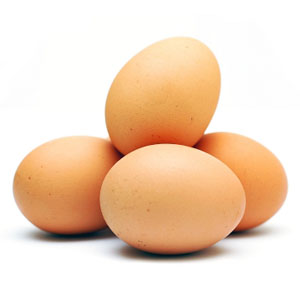 I was at my favorite grocery store a few weeks ago and I noticed they had started carrying a new brand of organic free range chicken eggs. I picked up the carton and read a bit about the farm so I could get a better understanding of the methods by which this particular farm operates. As I read the description on the package, it seemed to imply that these eggs were not just free range, but they were from pastured chickens! Discovering this new brand made me realize how confusing all the terms are when labeling eggs and chickens. Free range, free run, pastured, pasture-raised, grain fed, omega 3. All of these terms are enough to make your head spin. But what do they really mean?
I was at my favorite grocery store a few weeks ago and I noticed they had started carrying a new brand of organic free range chicken eggs. I picked up the carton and read a bit about the farm so I could get a better understanding of the methods by which this particular farm operates. As I read the description on the package, it seemed to imply that these eggs were not just free range, but they were from pastured chickens! Discovering this new brand made me realize how confusing all the terms are when labeling eggs and chickens. Free range, free run, pastured, pasture-raised, grain fed, omega 3. All of these terms are enough to make your head spin. But what do they really mean?
I decided to call the farm directly to speak with them about their practices and get a better understanding of how their chickens are raised. The description on the package wasn’t lying. This farm believes that chickens should have complete access to their pastures so they can forage in the grass and dirt for insects and grubs as a chicken should be doing.
Satisfied with my first call, I then thought it would be a good idea to call the Canadian Food Inspection Agency (CFIA) and inquire about how our government regulates and defines the different terms that are stamped on eggs. Call me crazy, but I assumed the government would want to monitor and control something like this. Although it took me a few transfers and a bit of phone tag, I eventually connected with a Labeling Law Officer who specifically works with egg regulations. Here’s where things started to get a bit interesting. The officer I spoke to indicated to me that the term ‘Free Range’ is essentially unregulated. Although there seems to be some very loose guidelines, the CFIA will allow nearly any farm to use the term on their eggs as long as that farm provides the government with a definition for that term. In other words, 5 different farms could operate by 5 different definitions of ‘free range’. One farm may define free range as ensuring the chickens have access to a specified amount of space outside the confines of the coup. This does not necessarily mean the grounds to which the chicken has access is a grassy pasture. Whereas another farm may define free range as allowing the chickens to roam freely, only being confined to the property boundaries. So the unfortunate truth is that unless the consumer asks the farmer how the chickens are being raised, there is no way to be certain that your free range eggs are truly ‘free range’.
The same holds true for other labels seen on eggs, such as free run or pasture-raised. When I asked the officer about pasture-raised or pastured eggs, I was astonished to find out the officer had no idea what I was referring to. These terms are just beginning to gain popularity, so I realize many consumer are still unaware of what is meant. But I did expected a Labeling Law Officer to be a bit more knowledgeable with respect to the industry in which they specialize. Pasture-raised (a.k.a. pastured) eggs, not to be confused with the term ‘pasteurized’, refers to eggs that are from chickens which are free to wander through the pastures. As I mentioned above, these chickens are able to eat a traditional chicken diet including insects and grubs. This results in chickens that produce a far superior quality egg with greater nutrient value.
The bottom line is that mega-companies who produces eggs rely on the fact that most consumers are unaware of the unregulated terminology within the egg industry. They simply slap a label on their packaging to give us the impression that their eggs are produced from happy chickens. As much as we’d like to trust our government to implement adequate guidelines and rules for the production of our food, the fact is that these regulations are not in place. The good news is that we, as consumers, have an enormous amount of power to shift the current practices. If you want to influence the rules and restrictions (or lack thereof), start asking questions at your grocery store, call the farm from which your eggs come, or even contact the CFIA and inquire about their intentions for regulating these definitions. Change can take some time, but have the ability to create the change we want.
What’s your favourite way to eat eggs?

